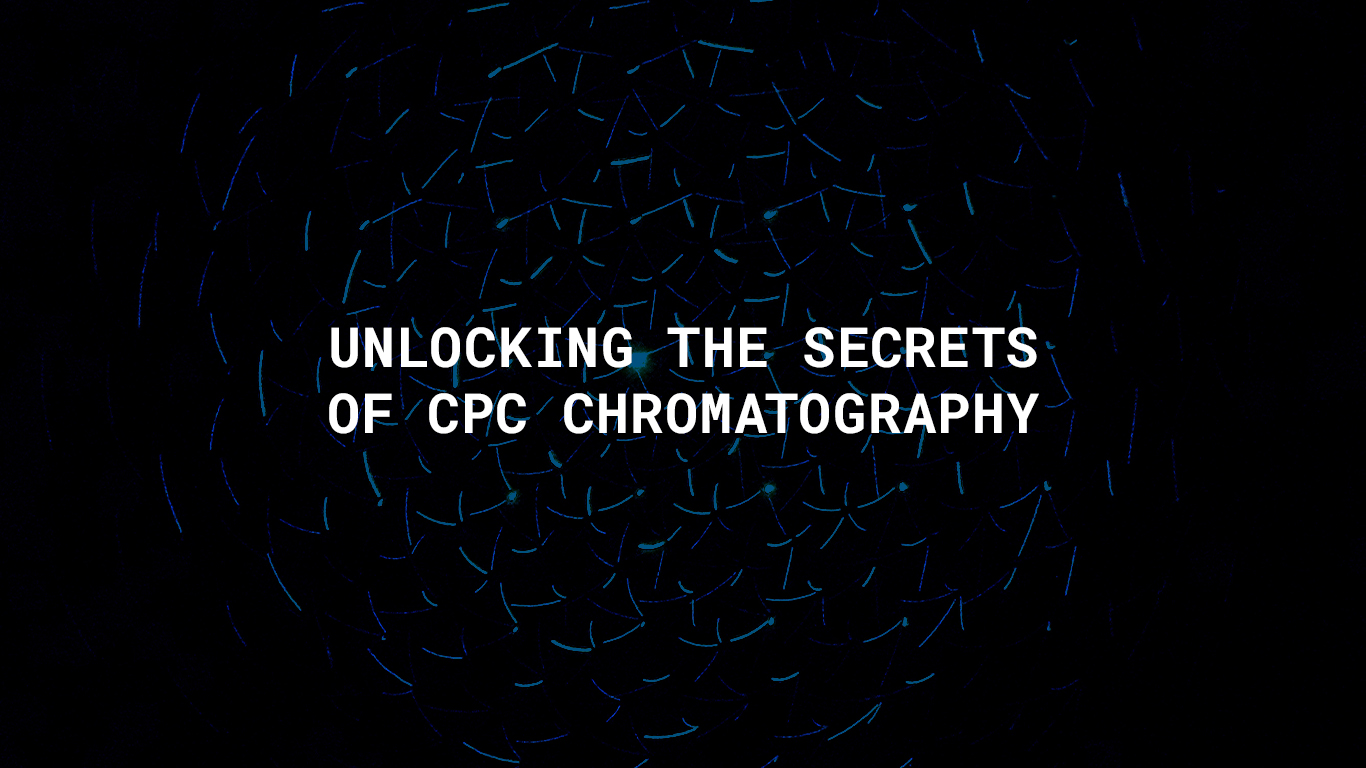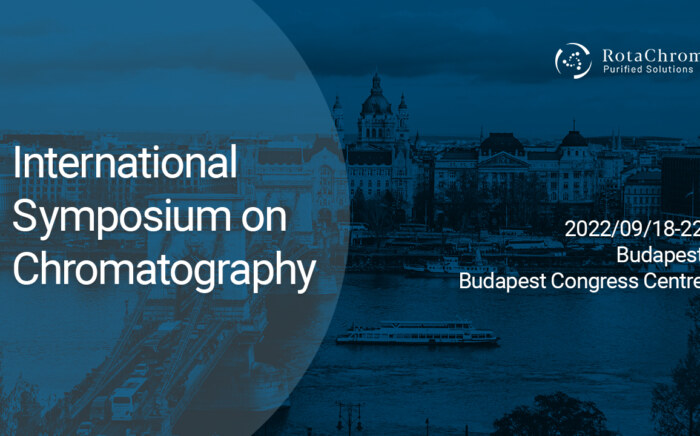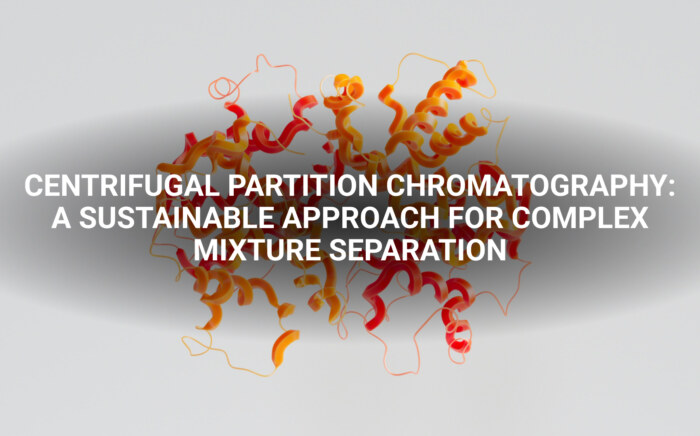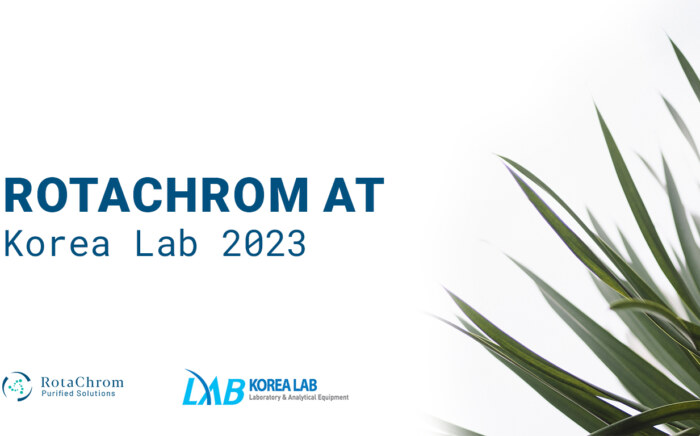Increasing separation efficiency by pH adjustment in Centrifugal Partition Chromatography
NewsCPC Chromatography is a great solution to many chromatographic challenges, whether it is large-scale or small-scale. Chromatographic separation can be carried out on two distinct scales: analytical and preparative. On the analytical scale, the primary objective of the separation process is to gather comprehensive knowledge about the sample under examination. The focus is on achieving high resolution, peak capacity, speed, and selectivity to obtain detailed information about the components present in the sample. This analytical approach allows researchers to gain insights into the composition and characteristics of the sample.
Conversely, on the preparative scale, the aim is to generate significant quantities of purified materials and compounds, while also eliminating impurities and maximizing the yield of the Compound of Interest (CoI). In addition to the parameters emphasized in analytical scale separations, preparative scale processes consider additional factors such as scalability, yield, throughput, and productivity. These parameters are crucial for ensuring efficient and cost-effective production of purified compounds on a larger scale.
Leveraging CPC Chromatography
While High-Performance Liquid Chromatography (HPLC) has a well-established reputation for both analytical and preparative purifications, Centrifugal Partition Chromatography (CPC) emerges as a particularly suitable choice for preparative scale purification. CPC offers distinct advantages, especially in terms of preparative purification requirements. Its unique characteristics, such as scalability, high yield, and productivity, make it an attractive alternative to traditional purification techniques for large-scale purification applications.
By leveraging CPC technology, researchers and industries can overcome the challenges associated with preparative scale purifications and achieve efficient and effective separation of complex mixtures. CPC’s ability to handle large sample volumes and produce high-purity compounds makes it a valuable tool for industries involved in pharmaceuticals, nutraceuticals, botanical extracts, and other fields that require substantial amounts of purified materials.
In summary, while analytical scale separations focus on gathering knowledge about a sample, preparative scale processes prioritize the production of purified compounds. CPC stands out as a promising solution for preparative scale purifications, offering scalability, high yield, and increased productivity compared to traditional methods like HPLC.
CPC Chromatography Advantages over HPLC
Preparative High-Pressure Liquid Chromatography (HPLC) has long been recognized as a popular and well-established technique for purification purposes. It excels in processing smaller quantities of samples with high efficiency and increased peak capacity, making it a preferred choice for preparative purification. However, experts in the field have highlighted certain real-world challenges associated with HPLC, particularly in relation to the use of silica as the solid stationary phase. These challenges manifest in the form of high operating and waste management expenses, which can significantly escalate the overall costs of using HPLC, especially in the long run.
On the other hand, Centrifugal Partition Chromatography (CPC) represents a powerful and emerging technology that offers several advantages over traditional methods. As a liquid-liquid chromatographic solution, CPC completely eliminates the need for silica, allowing users to achieve precision molecular separation without any associated complications or costs.
CPC Chromatography from RotaChrom
RotaChrom’s CPC solution, in particular, boasts a remarkable output capacity of approximately 20 kg/day, ensuring high productivity for large-scale purification requirements. Moreover, with CPC, there is no sample loss due to irreversible absorption on a solid stationary phase, providing an additional advantage over HPLC.
One notable feature of RotaChrom’s CPC technology is its individual cell design, which eliminates the time-consuming and painstaking scale-up procedures typically associated with traditional chromatographic applications. This innovative design streamlines the purification process, allowing for efficient and seamless operation. Additionally, the low maintenance requirements and the ability to reuse solvent systems further contribute to the cost-effectiveness and sustainability of CPC technology.
By harnessing RotaChrom’s CPC solution, users can overcome the limitations of traditional HPLC methods and enjoy the benefits of a powerful, silica-free chromatographic technique. With increased productivity, minimized costs, and simplified operation, RotaChrom’s CPC technology offers a promising alternative for preparative purification needs in various industries, including pharmaceuticals, nutraceuticals, and botanical extracts.
Further Resources
To learn more about CPC and chromatography in general, click any of the links below.



